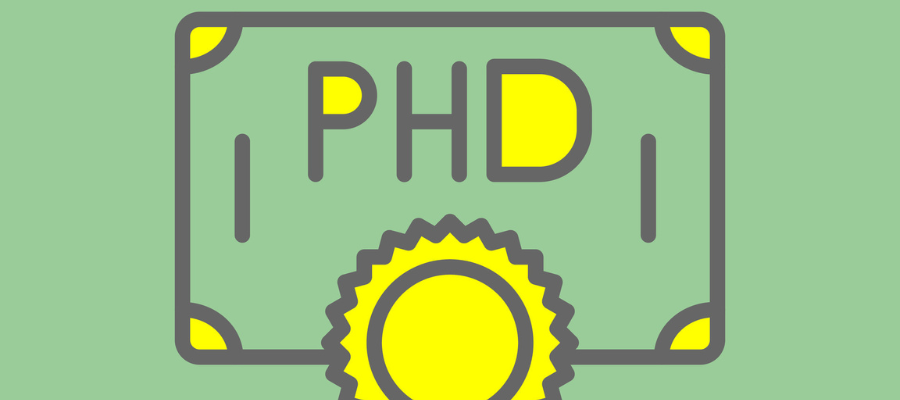Maintaining Mental Health During Your PhD


Getting a PhD is not merely an intellectual marathon—it’s an emotional and psychological odyssey with roller coaster highs and lows. As research, deadlines, and publications tend to get the lion’s share of attention, mental health tends to fall through the gaps. But caring for your mental health throughout your PhD is not a choice—it’s a necessity.
Let’s face it: a struggling mind can’t produce great research. No thesis is worth sacrificing your wellbeing. In this guide, we’ll unpack why PhD students often experience mental health challenges and offer practical ways to maintain a healthy mindset during your doctoral journey.
Why Mental Health Suffers in PhD Programs
PhD students tend to be regarded as smart and strong-willed. However, beneath the façade, most struggle quietly with stress, burnout, anxiety, and depression. These are the main reasons why mental health is under threat while pursuing a PhD.
- Isolation
PhD research is largely an individual endeavor. Research on a specialized topic can leave one feeling intellectually and emotionally alone. Unlike in undergraduate or even master’s degrees, doctoral research can be done with little social engagement, resulting in isolation in the long run.
- Uncertainty and Pressure
Academic timelines are seldom linear. Repeated failure of experiments, rejected papers from journals, and changed research objectives can leave one with a perception of unpredictability. This unpredictability can, in turn, along with the pressure to succeed, result in chronic anxiety and imposter syndrome.
- Perfectionism and High Expectations
Most PhD students are perfectionists. While excellence is great, it can be toxic if it causes self-criticism, procrastination, and setting unrealistic expectations. The notion that “nothing is ever good enough” builds a perpetual state of stress.
- Poor Work-Life Balance
The boundary of life and work becomes obscure during a PhD. Weekend work, long work hours, and guilty feelings about resting become the norm in most schools. This imbalance gradually leads to burnout and exhaustion.
- Financial and Career Concerns
PhD stipends can be modest, particularly when set against the workload and demands. On top of that, the academic job market is unpredictable. This dual cocktail of economic worry and future anxiety can be suffocating.
Warning Signs: When Your Mental Health Needs Attention
Early warning signs are crucial. Mental health issues while doing your PhD may not be spectacles at all—they tend to creep up incrementally. Watch out for these:
- Continued tiredness or exhaustion, even after rest
- Loss of motivation for activities you previously enjoyed
- Trouble concentrating or making decisions
- Hopelessness, inadequacy, or feelings of being an imposter
- Withdrawal from social interaction
- Changes in eating or sleeping patterns
- Greater irritability or mood swings
- Constant thoughts of giving up or wanting to escape
If you recognize several of these symptoms, you’re not alone—and it’s time to take your wellbeing seriously.
10 Proven Ways to Stay in Mental Health Throughout Your PhD
Taking care of your mental health is not about compromising your academic requirements. It is about establishing a strong foundation that is able to withstand your goals. Below are ten strategies to guide you on how to thrive mentally and emotionally throughout your PhD process.
- Set Clear Boundaries Between Work and Life
One of the most serious mental health risks during a PhD is failure to demarcate work and rest. Develop a routine schedule with a clear beginning and ending to your day. Try not to read emails or review drafts outside of work hours.
Your mind also requires rests just like your body. Safeguard your evening and weekends in order to relax.
- Take Breaks Without Guilt
Breaks aren’t wasted time—they’re necessary for long-term productivity. Whether it’s a 10-minute walk, a quick vacation, or a full mental health day, taking a break from your work keeps you from burning out.
Don’t measure your worth in terms of how many hours you put in. Prioritize sustainability over sacrifice.
- Seek Counseling or Therapy
Most universities provide low-cost or no-cost counseling services to graduate students. Therapy can be a lifesaver, particularly with anxiety, self-doubt, or depression.
There is no need to wait until a crisis arises. Talking with a professional on a regular basis can provide perspective, strategies for coping, and a safe outlet to rant.
- Create a Support Network
PhD life can be lonely, but you don’t have to suffer alone. Get involved with peer groups, writing groups, or even online forums where you can swap struggles and solutions.
Conversations with fellow students who “get it” cut down on loneliness and make the highs and lows of academia seem more normal.
- Be Physically Active
Physical and mental health go hand-in-hand. Simple exercise—even just light walks or stretching—can radically boost mood and lower anxiety.
Make movement part of your daily routine. It can be as simple as walking to campus, dancing to music at home, or practicing yoga.
- Pursue a Non-Academic Hobby
When your entire identity is wrapped in your research, any setback feels deeply personal. Maintaining a hobby outside academia helps diversify your sense of self-worth.
Gardening, painting, writing poetry, cooking—anything that brings joy and has no productivity goal can be therapeutic.
- Practice Mindfulness and Meditation
Mindfulness is not a fad—its been scientifically proven to lower stress and increase concentration. Take a few minutes of quiet contemplation or deep breaths each day. Headspace and Calm are two apps that can get you started.
You don’t need an hour of silence to practice mindfulness. Five minutes of mindful breathing can reboot your day.
- Communicate with Your Advisor
A healthy relationship with your supervisor can reduce much of the stress in a PhD program. Don’t be afraid to communicate when you’re overwhelmed or need to adjust expectations.
If your advisor is supportive, they may help restructure deadlines or reduce unnecessary pressure.
- Track Progress Without Obsessing
Rather than waiting for huge accomplishments such as completing a chapter or handing in a paper, mark small victories. Read a difficult article? Crack a problem? Arrive even when it was difficult?
Maintain a journal or to-do list to track your progress. This can be a morale booster and help you see how far you’ve traveled.
- It’s Alright to Ask for Assistance
There is no award for enduring in silence. Reaching out—to a mentor, colleague, counselor, or loved one—is a sign of strength, not weakness.
The PhD process is difficult enough without bearing the burden alone. Seeking help is an act toward resilience and healing.
When Things Get Too Overwhelming
Sometimes, despite your best efforts, things feel unbearable. Maybe the pressure is unrelenting, or you’re facing mental health issues that require more intensive support.
In such cases, consider these options:
- Take a temporary leave from your program
- Explore medication or therapy for anxiety/depression
- Switch supervisors if the relationship is toxic
- Consider part-time study if full-time demands are unsustainable
- Evaluate alternative career paths, if academia is no longer serving your wellbeing
There is no shame in taking stock. Your mental health is more important than a degree.
It is easy to get caught up in thinking that your self-worth is attached to your academic work. You are not your thesis, your publications, or your productivity. You are a complete human being, and your mental health is worth tending to, with compassion and respect.
Sustaining your mental health throughout your PhD isn’t so much about not breaking down, but more about creating a balanced, fulfilling, and sustainable existence. The journey might be long, but you don’t have to travel it in solitude, and you don’t have to get lost in the process.
Get help from Aara Consultancy today!
We provide 360° Solution for your Education Needs. Contact us






